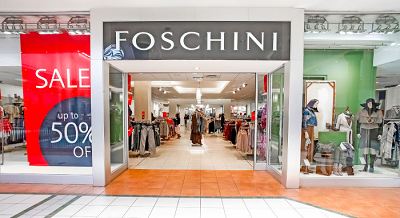

Founder: Turnaround Talk
In a world where digitisation is king and the reality of a hybrid workplace is one that is felt globally, the future of work has been shaken to its core. Not only have companies needed to make significant adjustments to accommodate this, landlords of office blocks, buildings and retail stores have had to overcome the major attrition that is associated with this change. Added to this is the fact that landlords are still battling to overcome the impact of the hard lockdown that was imposed by Government in March 2020 where industries were either shutdown or shifted online.
Rental income has been a divisive topic over the past two years. It was a major issue during the Edcon business rescue where CEO, Grant Pattison, pleaded with the South African Property Owners Association (SAPOA) over the issue. Pattison argued that the company was in no position to pay rental income – and shouldn’t pay rental income – during a period where the company was not allowed to trade. SAPOA argued that stock was occupying space in stores which therefore meant that rent was owed to them. SAPOA further pointed out that they also have financial commitments that they need to meet and that the association is also under significant financial pressure.
The last portion of the SAPOA statement (of the association being under financial pressure) leads to an interesting question, what happens to commercial properties when there is a remote working revolution? We have seen various iterations of plans to address this; however, landlords have buckled under pressure and have taken a more accommodating stance. A Moneyweb article discuss this in more detail. Subheadings were inserted by Turnaround Talk and the concluding section was written by Turnaround Talk.
A 14% leeway
The article points out that The Foschini Group, or TFG Limited, has managed to extract an average cut in rental costs on its lease renewals over the past year of 14%.
It is the only major retailer to disclose specifics regarding the reductions it has achieved in rentals. It achieved this considerable reduction in average rent across 662 renewals across TFG Africa, which equates to more than a fifth of its 3 000-plus store footprint.
Remarkably, on average, it is paying 17.4% less than the rents it paid per square metre in 2019 (pre-Covid). This would be a combination of far lower rents as well as more aggressive management of space (reductions of unprofitable store estate).

Photo By: Supplied
A major occupier
The article adds that among the two largest landlords in South Africa – Growthpoint and Redefine – TFG accounts for between 4% and 6% of total lettable space in their malls.
The problem for landlords is that TFG, like all clothing retailers, pays significantly higher rent per square metre than many other large tenants. Supermarkets will generally pay a fraction of the rent per square metre that a clothing chain does.
The Moneyweb article points out that while with Redefine, TFG accounts for 4.2% of space, it pays 6% of monthly rent. Woolworths, by comparison, has 5.5% of space but pays 2.9% of rent.
At far smaller Attacq, which owns the Mall of Africa, TFG accounts for 2.4% of space across the portfolio (it is the fourth-largest tenant), but is the single-biggest retail tenant when it comes to the rent bill (at 3.1%).
Smaller role players
the article adds that Woolworths is Attacq’s largest retail tenant by space (3.7%), but pays only 1.9% of total rent.
The second largest (as a percentage of gross rent) for Attacq is Mr Price Group. This retailer is the fifth largest, by space, for Growthpoint and seventh biggest for Redefine.
It disclosed limited detail earlier this month, but highlighted that its 371 lease renewals were achieved with “further base rental reversions and escalations in line with CPI” (consumer price index).
The article points out that TFG’s average renewals are at 6%. Mr Price Group says returns on new stores “continue to be highly attractive” with an “average payback period of 12 to 18 months”.
In effect, TFG is now paying lower rents at stores that have had leases renewed than it was pre-Covid. Consecutive annual rent increases of 8% or 10% were simply unsustainable.
The impact of Covid-19 lockdowns ensured that this base was reset, but it remains to be seen just how much rent tenants are willing to bear.

Photo By: Tripadvisor
Location, Location, Location
The Moneyweb article points out that , to achieve an average reversion of 14%, there are an awful lot of leases that are being renegotiated at a 20% (or higher) reduction in rent in underperforming malls. Others will have a reduction of, say, 5%.
The average cuts in retail rental that Growthpoint has agreed is 14.5% so far for its financial year (from 1 July). It describes this as its “weighted average renewal growth rate”. This continues to improve from the above 15% cuts in rental it agreed in recent years.
That one of its largest tenants, TFG, has achieved a reduction of 14% means there are tenants – likely both stickier space (huge supermarkets, gyms, cinemas and so on) as well as smaller independent line shops – that have secured rent reductions in excess of 14%.
The article adds that Landlords are also struggling with the number of leases they are able to renew – these have generally been somewhere between 60% and 80%. Five years ago, Growthpoint’s weighted average renewal lease period was 4.3 years. It is now 3.5 years.
In other words, retailers will sign renewals but for far shorter periods of time than the five years that was once standard.
The agility highroad
Many companies have had to adjust their operating model to address the challenges posed by the disruption that they currently face. A lot of literature has been written about agility and the benefits that it can offer companies.
This is a key example of this put into action. Landlords are under financial pressure and do have their own financial commitments. However, discretion is the better part of valour and their position is simple, a reduced rental income is better than no rental income. Short-term pain for long-term gain. Making accommodations for retailers now puts landlords in a favourable position when the economy recovers, and retailers return to pre-covid levels of profitability.
If there was ever a time to extend an olive branch (whether you are a creditor, landlord) now is the time.




